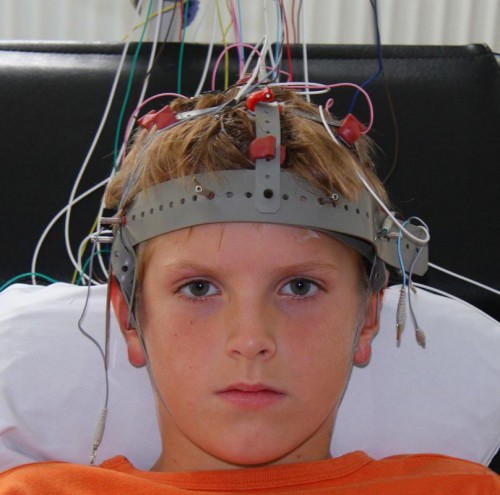Non-Medication ADHD Treatment Results Poor Studies Show
Here’s a great new finding that is bound to draw some ire from practitioners of alternative treatment’s for children with ADHD. I say that because it’s happened before any time someone tries to actually put some scientific investigation into areas of very lucrative sacred cows. What I’m referring to are: cognitive training, neurofeedback, behavioral interventions, and exclusion of foods associated with hypersensitivity. All of these “promise” ADHD treatment.
There are as many heated-opinions about how to treat children with hyperactive or attention deficit problems as there are in any other medical problem. Probably more so than in most issues because the exact origin is unknown AND it is a complicated problem to treat effectively due to the huge amount of tangential emotional and psychiatric issues involved.
Despite the huge number of web-sites which rant that there’s a “treatment known only to them” or that it’s one of the things “your doctor doesn’t want you to know” the fact remains that there is truly only ONE treatment proven by the scientific method to produce ANY reproducible results AND your doctor has absolutely no incentive to keep it from you.
Even though the condition has had multiple name changes over the past decade it is a REAL condition, not fictitious or an artifact of incompetent teachers trying to control unruly kids. It is definable by multiple observers and DOES have a treatment which is quantified by observers who don’t even know the treatment is being applied!
That, you see, is the problem with ANY “patent medicine” type treatment in this area. It is a proven fact that what is called the “placebo effect” is of substantial impact in this condition. What that means, for example, is that if a slick-talking con-artist was able to convince a parent that rubbing their child’s feet with mud every night would provide missing nutrients and help them calm down – actually 10-20 percent or more of parents would ACTUALLY see the child get calmer. No kiddin’. And even if a non-related teacher evaluated the child at the same time, a few of them would answer that there truly had been a change if they knew something was being tried.
 This is especially true if the mud cost the parents $50 an ounce! You see, the more money or effort or sacrifice required of the parent – the more investment being made – the more “pressure” (and desire) to see some results. And the easier those results are to “see” (i.e. merely someone’s judgment or opinion instead of an actual measurement) the more positive results WILL be seen.
This is especially true if the mud cost the parents $50 an ounce! You see, the more money or effort or sacrifice required of the parent – the more investment being made – the more “pressure” (and desire) to see some results. And the easier those results are to “see” (i.e. merely someone’s judgment or opinion instead of an actual measurement) the more positive results WILL be seen.
It truly happens. All of us who have done research have experienced it and have needed to spend great effort to overcome the bias. We NEVER have only one observer, we look suspiciously on results ANY TIME we need to use non-quantifiable reporting and we bend almost into contortions to make sure that people who are doing the assessment HAVE NO CLUE what treatment (if any) the child is receiving at the moment they make their assessment. That’s called being BLIND to the expected outcome. There are other ways to invalidate a scientific study but not having the rater “blind” is the most basic and most common. It’s a great way to trick an undiscerning public.
Being fooled into seeing things that you think you are going to see isn’t just a problem for researchers in ADHD – it’s everywhere. And that’s the problem when trying to find a treatment to a condition which has such a massive number of “connections” to behavior, emotions and cognition – like in ADHD. And especially when the results of finding something new has so much to do with financial gain.
In the instance of ADHD the ONLY SCIENTIFICALLY PROVEN treatments that work are a combination of pharmacologic, educational and parenting techniques – tough duty! These take time and effort on the part of a child’s care-givers. It would be a lot easier, if you could find one that truly worked, to hook the child up to a machine and make them do the work or take something out of the diet.
 Every physician I know would think that it would be wonderful if the condition was something that could be “fixed” instead of something that had to be overcome and lived with. After all, even using the known effective treatments aren’t without difficulties. First, going clear back to “normal” is rare and then there are adverse effects on sleep, appetite and growth in some children which need to be watched for. And, of course, parents usually have concerns about ANY long term medication use.
Every physician I know would think that it would be wonderful if the condition was something that could be “fixed” instead of something that had to be overcome and lived with. After all, even using the known effective treatments aren’t without difficulties. First, going clear back to “normal” is rare and then there are adverse effects on sleep, appetite and growth in some children which need to be watched for. And, of course, parents usually have concerns about ANY long term medication use.
The European ADHD Guidelines Group (a multinational group of ADHD experts and academicians) conducted a truly massive review of every published paper on non-pharmacologic treatment of ADHD they could find – over two thousand in all! They were from a number of countries and different training but it seems had two things in common: one, a real desire to make sense out of all the different methods, treatments and claims finding those that really worked and those that didn’t; and two, the desire to apply the scientific method to find the truth.
On critical review, however, out of 2,904 records only 54 of them actually used scientific methodology – and even fewer saw to it that the raters were blind to the child’s treatment!
They have now reported their extensive research in the American Journal of Psychiatry (Jan 30,2013) and found that even though all of the alternative-treatment studies had claimed statistical significance they were done by raters close to the therapeutic setting (i.e. not-blind). When the best “probably blinded” rater was used the statistical significance evaporated. [My assessment is that if we honestly knew whether raters were blind – the statistics would evaporate completely – but that’s informed opinion not science.]
The papers included: 7 elimination diets, 8 food coloring exclusions, 11 free fatty acid supplementation, 6 cognitive training, 8 neuro-feedback and 15 behavioral intervention trials. Only omega-3/omega-6 fatty acids and artificial food coloring elimination showed statistical significance and those were very small and/or were skewed by the inclusion of only food-sensitive children.
Additionally some of the studies were found to have included children also taking medications, and when those were subtracted… well, only the omega fatty acid supplements showed any small (and questionably significant) advantage.
So, it’s back to the drawing board. The researchers conclude “Better evidence for efficacy from blinded assessments is required for behavioral interventions, neurofeedback, cognitive training, and restricted elimination diets before they can be supported as treatments for core ADHD symptoms.”
If we could just get the practitioners doing research on alternative treatments to actually use the basic scientific method so we could find the real truth – but, I can understand that it isn’t fun (or lucrative) to do research when you’re proven wrong. However, if we’re truly concerned about finding solutions to ADHD and the children involved; meticulous attention to the scientific method IS our only hope!
[Am J Psychiatry. Published online January 30, 2013]
13 Posts in ADHD Hyperactivity (hyperactivity) Series
- Hyperactivity & Puberty - Part 2, Issues and Actions – 22 Jan 2019
- Hyperactivity & Puberty - Part 1 – 10 Jan 2019
- The Children - Followup and Outcomes – 26 Mar 2017
- (Link) Don't JUST take my word for it – 23 Feb 2017
- Treatment: Cognitive Training, Medication – 18 Feb 2017
- Treatment: Five Pillars of ADHD Treatment – 4 Feb 2017
- Treatment: How can we know what works? – 29 Jan 2017
- (Video) Sucess in 'Something' Helps – 20 Jan 2017
- The Patient – 15 Jan 2017
- First, the diagnosis – 11 Jan 2017
- Labels and 'Alphabet Soup' – 7 Jan 2017
- Treatments - 'alternative' – 6 Feb 2013
- ADHD Hyperactivity: Intro/Index – 5 Feb 2013

